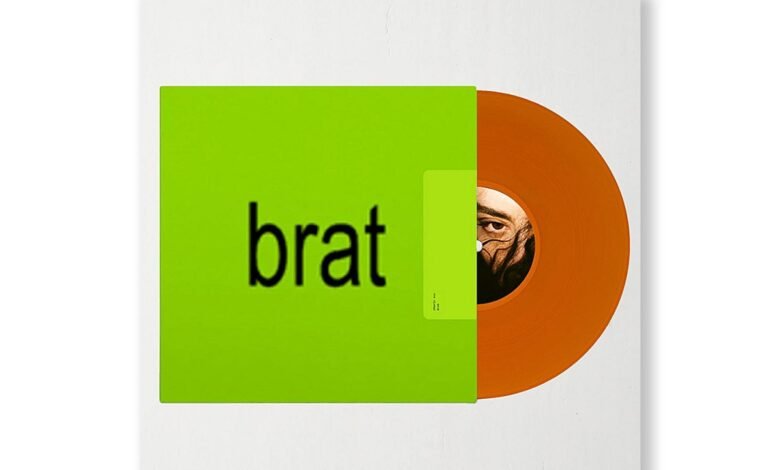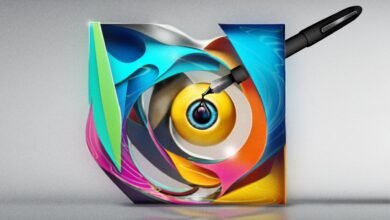Charli XCX Toys with Stardom on “BRAT”

Halfway through Charli XCX’s new album, “BRAT,” the British pop star delivers a lyric that is “pop” in neither form nor content. She is rapping, more or less, her voice slightly warped by Auto-Tune. Flouting conventions of rhyme and meter, she acknowledges the sorts of concerns that stars like her are typically expected to ignore, at least on record:
A decade ago, Charli did not seem like someone who needed to wonder about that sort of thing. She was twenty-two when she released her second album, “Sucker,” at the end of 2014, by which time she was riding the momentum of a trio of hits. “I Love It,” a 2012 collaboration with the Swedish duo Icona Pop, was a worldwide phenomenon, reaching No. 7 on the Billboard Hot 100 chart. “Fancy,” with Iggy Azalea, reached No. 1, and “Boom Clap,” a Charli XCX solo track, went to No. 8. It was a great start, but in some sense a false one—Charli has not returned to the Billboard Top Ten since then. And yet her reputation has only grown. She has become one of the most influential musicians of her generation, partly because of the way she grabs onto pop clichés, squeezing them so hard that they deform between her fingers. She loves to exaggerate the seeming mindlessness of the genre, sometimes repeating a phrase so insistently that it sounds like nonsense: “I got it, I got it, I got it, I got it, I got it, I got it / I got it, I got it, I got it.” Some of her fans—known, you might have guessed, as Angels—are loyal to “Pop 2,” a 2017 release (officially a mixtape, not an album) that ended with a finale called “Track 10,” a glitched and garbled version of a relatively traditional pop song. The source material, “Blame It on Your Love,” was not officially released until two years later, which meant, fittingly, that the original was the remix, and the remix was the original.
Charli never seems to stop working, and her discography is a steady stream of releases, including “how i’m feeling now,” from May, 2020, which was created mainly in isolation, and which was one of the first examples of a new form: the lockdown album. But you can hear her, too, in a wide range of contemporary music, from the dreamy and intricate compositions of Caroline Polachek to the studiously campy confections of Kim Petras, both of whom appeared on “Pop 2.” This past Wednesday, when the twenty-tens hitmaker Katy Perry unveiled a new look on Instagram—motorcycle jacket, short shorts, retro sunglasses, harsh camera flash—some fans thought she looked more than a little like Charli, who was once her opening act. And, earlier this year, Camila Cabello announced her new album by releasing an addictive single called “I LUV IT,” which had Charli-esque pneumatic synthesizers and an ultra-repetitive chorus: “I love it, I love it, I love it, I love it / I love it, I love it, I love it.” (Even the announced title of Cabello’s new album looked like a tribute: “C,XOXO.”) When asked about the perceived similarity, Cabello was unblushing. “I love Charli and I love Charli’s music,” she said, and she claimed to have special dispensation. “Charli loves me, so everybody can fuck off.”
This is a mixed blessing for a pop star: to be cooler than you are popular. In March, at a Brooklyn installment of the travelling party called Boiler Room, Charli seemed to revel in her status as an underground favorite. Wearing a T-shirt that said “CULT CLASSIC,” she and a few collaborators previewed selections from “BRAT,” mixing unreleased tracks into a frenzied seventy-five minutes of party music; Angels braced themselves for an album that would showcase Charli at her most rowdy and reckless. What they got, instead, is something stranger and more self-conscious, sometimes more uncomfortable. The fifteen tracks on “BRAT” affirm Charli’s status as a trailblazer while divulging her own doubts about where, exactly, she’s going. A sense of confidence has always been central to Charli’s pop identity; she can deliver daffy lyrics (“Lavender Lamborghini, roll up in a blue bikini”) with such conviction that you almost forget she’s in on the joke. Now she wants to find out what she sounds like without so much certainty.
Of course this, too, is a pop cliché: stars are constantly reassuring fans that their latest project offers a window into how they’re really feeling, when the spotlight is off. But Charli’s version of this move is a bit more meta, because she’s singing about her career, and her peers. In “Sympathy is a knife,” she describes someone who brings out her “insecurities,” adding, “Don’t wanna see her backstage at my boyfriend’s show.” (She knows that we know that her boyfriend—now her fiancé—is George Daniel, the drummer for the 1975, a band led by Matty Healy, who was briefly linked to Taylor Swift.) Another song, “Girl, so confusing,” is about Charli’s ambivalent relationship with a fellow-singer. “People say we’re alike / They say we’ve got the same hair / We talk about making music / But I don’t know if it’s honest,” Charli recites, in a monotone that makes it hard to tell whether she is anxious or over it. It’s clear that the song is about the singer Lorde, or at least that she wants us to think it is; in a recent interview, she confessed that she used to compare herself to Lorde, thinking, “She had big hair; I had big hair.” In an earlier era, fans might have taken months to digest and decode these lyrics, wondering about a possible feud; but ours is an era of near-instantaneous responses. Before the album had even been released in America, Lorde posted a message on Instagram Stories, praising Charli but not addressing the song directly. “It’s an honour to be moved, changed and gagged by her work,” she wrote. “There is NO ONE like this bitch.”
Like much effective pop music, “Girl, so confusing” is extremely catchy and somewhat annoying, perhaps on purpose. It captures the claustrophobic and doubtless vexing feeling of being enmeshed in the small, highly competitive, and terrifyingly interconnected world of pop stars and semi-pop semi-stars. It is calculatedly annoying, too, because of the way Charli uses her voice. Those early Charli hits sounded like the products of a perfectly tuned pop machine, but “BRAT” plays up the fact that Charli has never had a voice built for grand ballads—as an established veteran, she has made herself sound more like an amateur than ever, delivering lyrics that sometimes resemble notes for future songs, and moving between pitches to accentuate the Auto-Tuned warble in her voice. At times, the album seems to echo the work of nonprofessional singers like Farrah Abraham, the former “Teen Mom” celebrity who released an astonishingly chaotic electronic album in 2012, or Rebecca Black, who became an accidental sensation after the release, in 2011, of a deliciously homemade-sounding song called “Friday.” (Black subsequently reinvented herself as a singer of stylized dance tracks; naturally, she counts Charli among her inspirations.) Earlier this year, a TikTok user called girl_on_couch recorded herself making a wish: “I’m looking for a man in finance, trust fund, six-five, blue eyes,” she said, her voice sizzling with vocal fry. The caption read, “Can someone make this into an actual song plz just for funzies.” A number of musicians have since obliged, including the indefatigable French producer David Guetta, who released his remix on the same day Charli XCX released her new album. People who love pop music tend to cherish both art and artlessness, which explains why professionals spend so much time trying to sound like amateurs, and vice versa.



